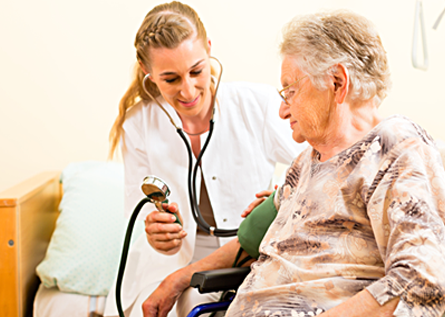HOME PHYSIOTHERAPY

The physiotherapist is a key figure in the field of integrated home care. Alone or in collaboration with other operators, the physiotherapist is the one who deals with the treatment of disorders and traumas related to the patient's muscular, ortheuredic and neuropathic sphere. Accidents, various traumas, neurological and neurodegenerative diseases, aging and cardiovascular problems, do not compromise only the organic functions of the person, but also the motor ones, and when these are lost, the psychosocial and cognitive sphere is also seriously damaged. To restore it, you need the physiotherapist's intervention. As already said, the latter can work in a team, that is, within a medical team, or alone, as an employee of public or private structures, or as a freelancer. As a health professional, the physiotherapist has a qualification that allows him to solve muscular, orthopedic and neuromotor problems, chronic or acute. His preparation also allows him to intervene preventively through treatments that improve the well-being and health of the muscular and osteoarticular apparatus. Physiotherapy treatments can be carried out not only at public and private clinics, but also at patients' homes.
Home physiotherapy can be requested in all cases in which it is impossible to reach the outpatient clinic due to motor difficulties or simple practical reasons. Home physiotherapy treatments, precisely because they are carried out in a familiar environment, can prove to be much more relaxing and effective. Naturally, the physiotherapist is not a simple masseur, but a health worker whose treatments have and must have a medical value and efficacy. The physiotherapist's performance becomes indispensable even in all those situations in which the muscular and osteo-articular system is compromised by serious pathologies or acute and chronic traumas. In this case, the physiotherapist's interventions can range in three directions: evaluative, manual and educational. The assessment concerns the examination of the patient's condition, as a history of previous diseases, causes that determined the motor difficulties and drugs taken, while the manual interventions relate to the actual health treatments carried out using manual massage techniques or postural rehabilitation areas, muscles and limbs whose function has been compromised by trauma or disease. The interventions of an educational nature include gymnastic exercises, which the patient must follow in the context of a postural or neuromuscular rehabilitation pathway, and indications on the use of certain prostheses or medical-surgical aids necessary for restoring motor skills. In detail, home physiotherapy includes.
- neuromotor rehabilitation
- motor rehabilitation
- sports rehabilitation
- respiratory rehabilitation
- cardiological rehabilitation
- vertebral pain treatment
- Massage therapy
- functional and postural evaluations
- medical and postural gymnastics
The aforementioned treatments can also be programmed with our Operations Center according to the specific needs of the customer or the applicant. Home physiotherapy cycles require a minimum of 4 sessions.

